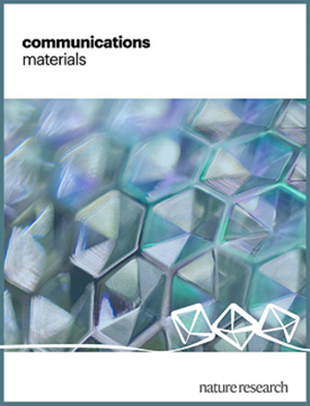Grain boundary cracks patching and defect dual passivation with ammonium formate for high-efficiency triple-cation perovskite solar cells
IF 9.6
Q1 MATERIALS SCIENCE, MULTIDISCIPLINARY
引用次数: 0
Abstract
Triple-cation perovskite solar cells exhibit better long-term stability as compared to FAPbI3 devices but also have more ions and vacancies defects in film. Herein, ammonium formate (NH4HCO2) is introduced and forms a stable NH4HCO2-PbI2 adduct onto the surface of perovskite to patch grain boundary cracks and passivate interfacial defects. The density functional theory calculation results indicate that there is a strong interface interaction between perovskite and NH4HCO2, and the defects are well anchored by forming Pb··COOH bond and I··NH4 bond. The density of states proves that surface trap states by the I vacancy is also effectively eliminated, which is consistent with the experimental results. As a result, the optimized devices achieve a power conversion efficiency of 24.62% and exhibit remarkable long-term stability in air. This work provides a simple defect multiple passivation strategy to prepare perovskite solar cells with high efficiency and stability. Triple-cation perovskite solar cells are more stable than formamidinium lead iodide but possess more defects. Here, grain boundary cracks and passivate interfacial defects are patched using ammonium formate which forms a stable adduct on the perovskite surface.

高效三阳离子钙钛矿太阳能电池的晶界裂纹修补和甲酸铵缺陷双钝化
与FAPbI3器件相比,三阳离子钙钛矿太阳能电池具有更好的长期稳定性,但在薄膜中也存在更多的离子和空位缺陷。本文引入甲酸铵(NH4HCO2),在钙钛矿表面形成稳定的NH4HCO2- pbi2加合物,修补晶界裂纹,钝化界面缺陷。密度泛函数理论计算结果表明,钙钛矿与NH4HCO2之间存在较强的界面相互作用,缺陷通过形成Pb··COOH键和I··NH4键得到较好的锚定。态密度证明了由I空位引起的表面陷阱态也被有效消除,这与实验结果一致。结果表明,优化后的器件的功率转换效率为24.62%,并在空气中表现出显著的长期稳定性。本研究为制备高效稳定的钙钛矿太阳能电池提供了一种简单的缺陷多重钝化策略。三阳离子钙钛矿太阳能电池比碘化甲醛铅电池更稳定,但缺陷更多。用甲酸铵修补晶界裂纹和钝化界面缺陷,甲酸铵在钙钛矿表面形成稳定的加合物。
本文章由计算机程序翻译,如有差异,请以英文原文为准。
求助全文
约1分钟内获得全文
求助全文
来源期刊

Communications Materials
MATERIALS SCIENCE, MULTIDISCIPLINARY-
CiteScore
12.10
自引率
1.30%
发文量
85
审稿时长
17 weeks
期刊介绍:
Communications Materials, a selective open access journal within Nature Portfolio, is dedicated to publishing top-tier research, reviews, and commentary across all facets of materials science. The journal showcases significant advancements in specialized research areas, encompassing both fundamental and applied studies. Serving as an open access option for materials sciences, Communications Materials applies less stringent criteria for impact and significance compared to Nature-branded journals, including Nature Communications.
 求助内容:
求助内容: 应助结果提醒方式:
应助结果提醒方式:


